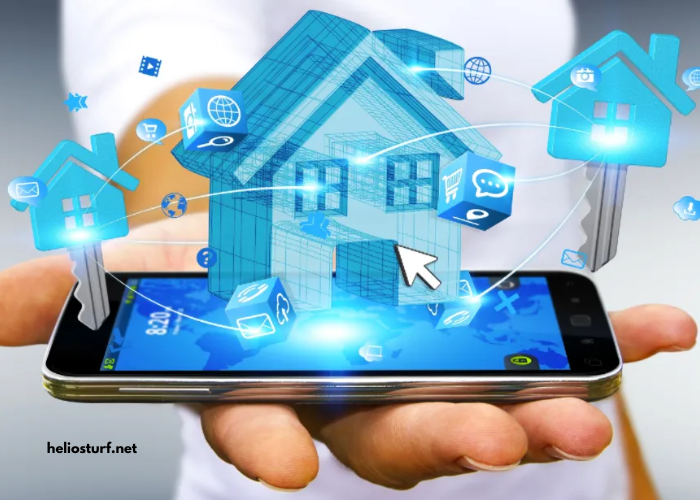
Technology is evolving faster than ever, and 2025 is shaping up to be a milestone year for innovation. As industries worldwide adapt to smarter systems, the adoption of cutting-edge technology is no longer a luxury—it’s a necessity. From artificial intelligence and smart cities to quantum computing and bioengineering, 2025 will witness the rise of intelligent solutions that redefine how we live, work, and connect.
In this comprehensive guide, we explore 2025’s top emerging tech trends, offering insights into their real-world applications, potential benefits, and long-term impact.
Table of Contents
-
The Rise of Artificial Intelligence 2.0
-
Quantum Computing Moves Closer to Reality
-
Smart Cities and Urban Tech Integration
-
5G & 6G: The Next-Gen Connectivity
-
Sustainability Tech and Green Innovation
-
Metaverse and Extended Reality (XR)
-
Cybersecurity and AI-Based Threat Detection
-
Biotechnology and Personalized Healthcare
-
Autonomous Mobility and Robotics
-
Conclusion: A Smarter, Safer, More Connected Future
The Rise of Artificial Intelligence 2.0
What Is AI 2.0?
Artificial Intelligence (AI) has already transformed multiple sectors. However, in 2025, we’re witnessing the shift toward AI 2.0—a more contextual, ethical, and collaborative model of machine intelligence. Unlike basic machine learning algorithms, AI 2.0 focuses on reasoning, decision-making, and adaptive learning based on real-world inputs.
Applications of AI in 2025
-
Finance: Predictive analytics for fraud prevention and real-time trading.
-
Healthcare: AI-driven diagnostics and robotic surgery.
-
Retail: Hyper-personalized shopping experiences using AI behavior analysis.
-
HR & Recruitment: AI-led interviews and unbiased candidate assessments.
Quantum Computing Moves Closer to Reality
The Quantum Leap
Quantum computing is no longer science fiction. In 2025, tech giants like IBM, Google, and Intel are making significant breakthroughs in quantum research. Quantum computers use qubits instead of bits, enabling exponentially faster processing speeds and data solving capabilities.
Impact Across Industries
-
Pharmaceuticals: Discover new drug compounds at lightning speed.
-
Logistics: Optimize supply chain routes in real-time.
-
Cryptography: Develop ultra-secure communication systems.Climate Science: Simulate complex environmental systems for better forecasting.
Smart Cities and Urban Tech Integration
Building Intelligent Urban Spaces
Smart cities are urban areas that leverage digital technology and IoT (Internet of Things) to enhance the quality of life for citizens. In 2025, cities across the globe—from Dubai and Singapore to Barcelona and New York—are integrating smart solutions for urban planning and sustainability.
Key Smart City Innovations
-
Smart Grids: Efficient energy management using real-time data.
-
Intelligent Traffic Systems: AI to reduce congestion and emissions.
-
Waste Management: IoT-enabled bins that monitor and report fill levels.
-
Public Safety: AI surveillance systems and emergency response networks.
5G & 6G: The Next-Gen Connectivity
Evolution of Mobile Networks
While 5G is becoming mainstream, the groundwork for 6G technology is already being laid. By 2025, we expect massive 5G adoption globally and the initial testing of 6G in advanced tech hubs.
Use Cases of Ultra-Fast Connectivity
-
Autonomous Vehicles: Reliable, low-latency communication.
-
Smart Homes: Seamless interaction between all connected devices.
-
Remote Work & Education: Enhanced AR/VR experiences.
-
Healthcare: Real-time remote surgeries via connected medical tools.
Sustainability Tech and Green Innovation
Addressing the Climate Crisis with Technology
As climate change escalates, green tech innovations are stepping in to create a more sustainable world. From renewable energy systems to AI-powered carbon monitoring, 2025 focuses heavily on environmental impact reduction through smart technology.
Emerging Green Technologies
-
Vertical Farming: AI-managed agriculture in urban settings.
-
Smart Irrigation Systems: IoT sensors to conserve water.
-
Clean Energy Storage: Advanced battery technologies.
-
Circular Economy Platforms: Digital tools for waste tracking and recycling.
Metaverse and Extended Reality (XR)
A New Dimension of Digital Interaction
The metaverse is no longer a buzzword—it’s becoming an integrated part of work and social life. XR (Extended Reality), which includes AR (Augmented Reality), VR (Virtual Reality), and MR (Mixed Reality), is changing how people connect, learn, and do business.
Business Opportunities in the Metaverse
-
Virtual Real Estate: Investment in digital land on platforms like Decentraland.
-
Education & Training: Immersive learning environments.
-
Retail & Fashion: Virtual try-ons and product demos.
-
Entertainment: Concerts, movies, and gaming in immersive digital spaces.
Cybersecurity and AI-Based Threat Detection
Staying Ahead of Evolving Threats
As digital ecosystems expand, so do the risks. In 2025, AI-powered cybersecurity is essential to tackle increasingly sophisticated attacks. From real-time malware detection to automated incident response, businesses are turning to smart solutions for digital protection.
Trends in Cybersecurity
-
Zero Trust Architecture: Assume breach mentality in security protocols.
-
Behavioral Analytics: Detect anomalies in user activity.
-
Blockchain Security: Decentralized security for financial and personal data.
-
Quantum-Resistant Encryption: Future-proof cryptographic methods.
Biotechnology and Personalized Healthcare
Smart Health is Personalized Health
Medical technology is seeing a paradigm shift in 2025 with the advancement of biotech and genomics. With AI and big data at the core, healthcare is moving from reactive treatment to preventive, data-driven care.
Innovations Reshaping Healthcare
-
Digital Twins: Create a virtual model of your body to simulate treatment.
-
Wearables & Biosensors: Continuous health monitoring.
-
Genetic Editing (CRISPR): Potential cure for hereditary diseases.
-
Telemedicine 2.0: AI-assisted consultations and automated health insights.
Autonomous Mobility and Robotics
Self-Driving and Self-Working Systems
From autonomous vehicles to AI-powered robots, automation is reaching unprecedented levels. In 2025, we’ll see a broader rollout of driverless public transport, robotic delivery systems, and automated industrial machinery.
Real-World Use Cases
-
Delivery Drones: Contactless and efficient last-mile logistics.
-
Self-Driving Trucks: Long-haul logistics with minimal human input.
-
AI Factory Bots: Reduce downtime and increase precision in manufacturing.
-
Home Robotics: Smart vacuum cleaners, lawn mowers, and even robotic chefs.
H3: Ethical Tech and Digital Responsibility
As technology becomes more embedded in daily life, ethical considerations are vital. 2025 emphasizes responsible AI, data privacy, and digital inclusion to ensure that innovation benefits all layers of society.
Ethical Innovation Practices
-
Transparency in AI Decisions
-
Inclusive Design for Accessibility
-
Sustainable Development Goals (SDGs) Integration
-
Consumer Data Rights and Control
Conclusion: A Smarter, Safer, More Connected Future
The landscape of technology in 2025 is driven by smart solutions that offer greater efficiency, deeper insights, and more meaningful user engagement. From AI 2.0 to smart cities and biotechnology, the emerging trends are not just about novelty—they’re about building a better future.
As businesses, governments, and individuals embrace these changes, it’s essential to remain adaptable, ethical, and forward-thinking. Investing in smart tech today ensures a more resilient tomorrow—one where connectivity, sustainability, and intelligence drive progress.
Frequently Asked Questions (FAQs)
What are the top tech trends of 2025?
The leading tech trends include AI 2.0, quantum computing, smart cities, extended reality (XR), sustainable technology, and 5G/6G expansion.
How will AI evolve in 2025?
AI in 2025 will focus on ethical algorithms, self-learning systems, contextual intelligence, and real-time decision-making capabilities.
Is quantum computing commercially viable in 2025?
While still in development, quantum computing is entering prototype stages with real-world pilot programs in logistics, finance, and pharma.
How does smart city technology impact daily life?
Smart cities use IoT and AI to manage utilities, reduce traffic, monitor air quality, and provide safer, more efficient living environments.




